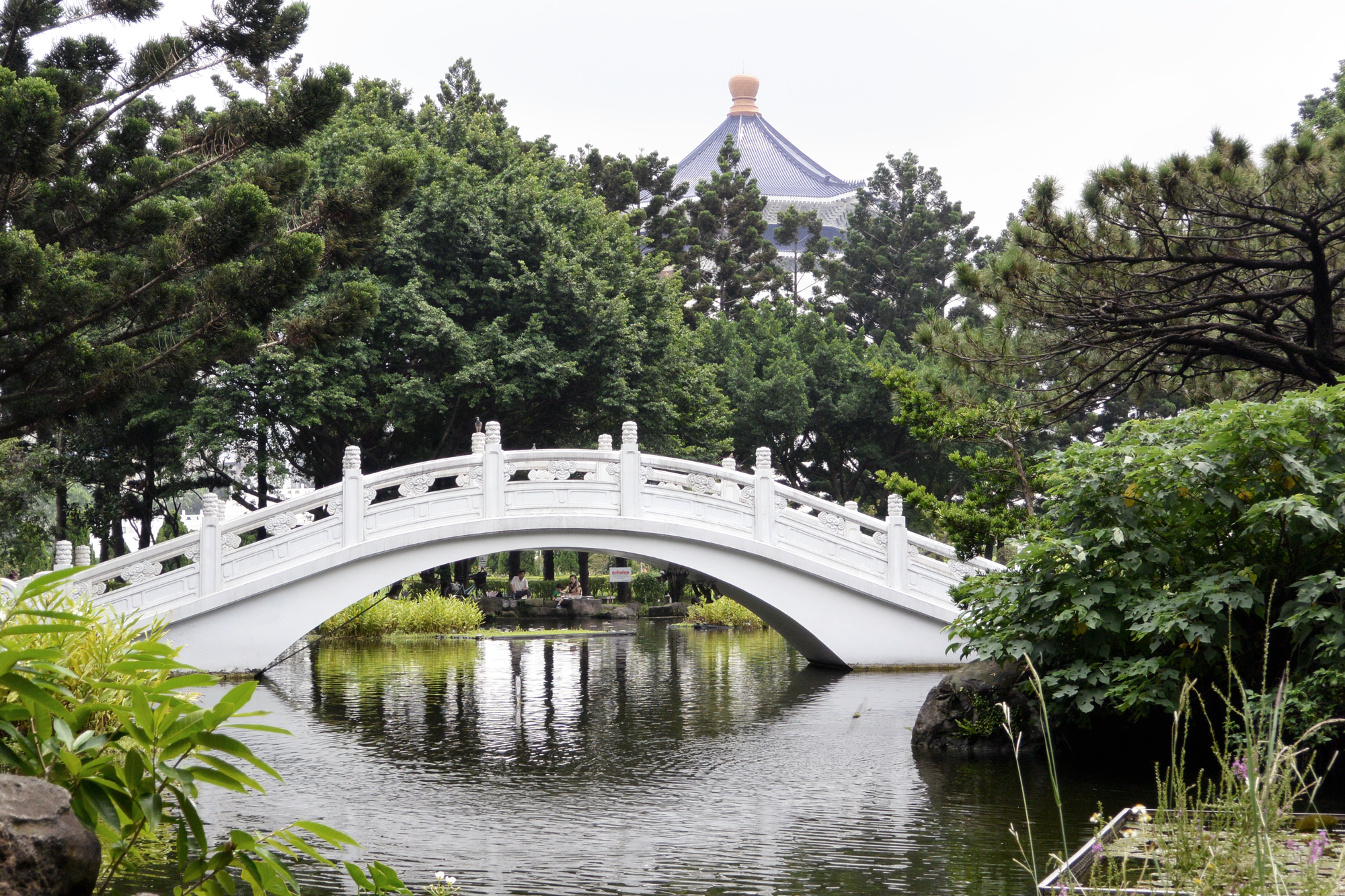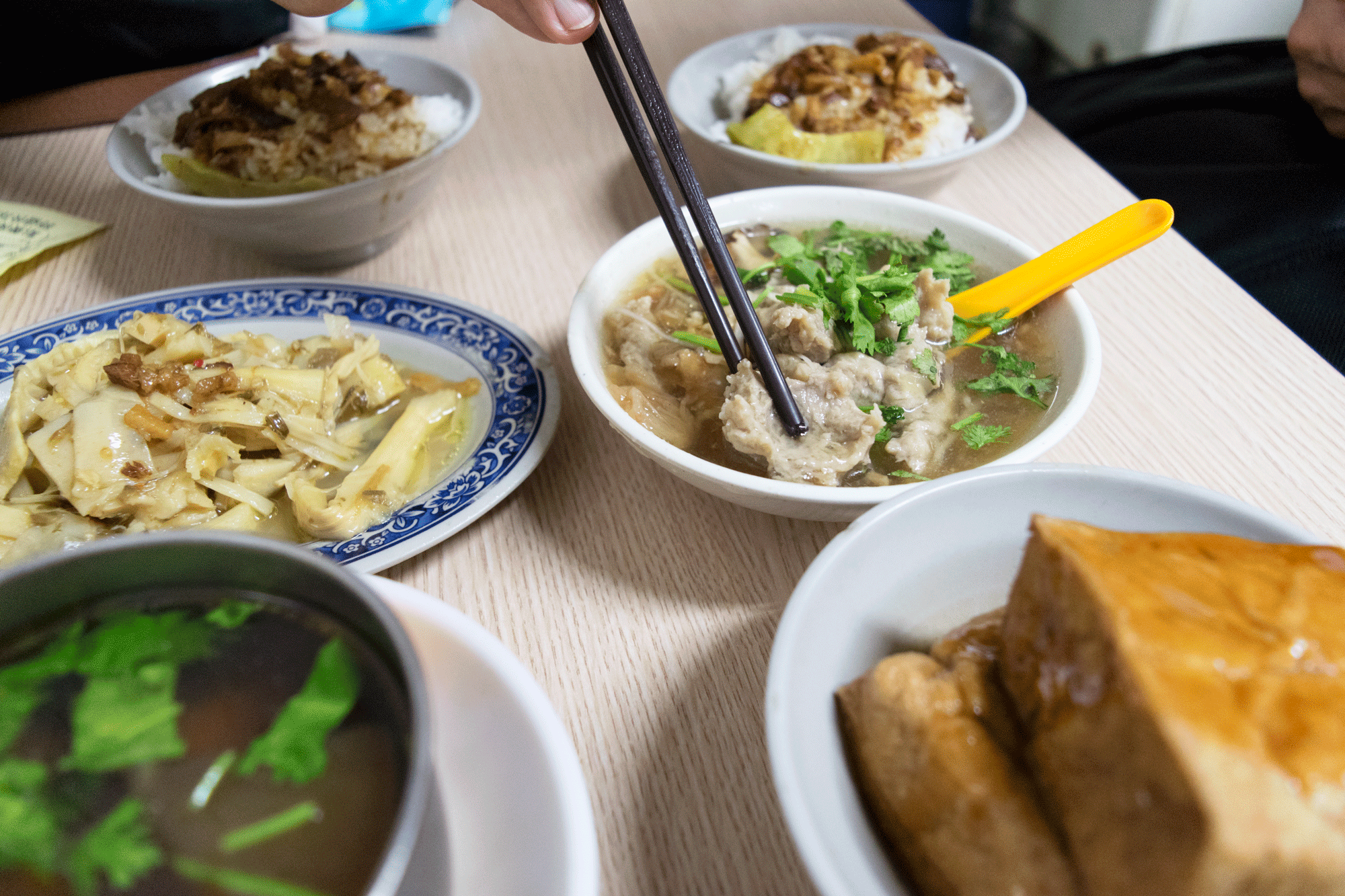Taiwan is full of traditional markets. Every neighborhood has its own local market, but there are a few that are worth going out of your way to check out. Nanmen Market is one of them. First established in 1906, the historic market has served generations of Taiwanese households. Today, it is one of the most famous ones in Taipei, and one of the most “luxurious,” given that it’s entirely indoors, with air conditioning and all. Even if you don’t need groceries from the wet market, it’s still worth a visit for the specialty foods section. Taste your way through the stalls: from dried fruits to buffets of cooked foods; and stock up on Taiwanese pantry staples like dried mushrooms and spices. Don’t leave without trying fresh grilled Taiwanese pork “jerky,” which ranges from thin and crispy (like chips) to sweet glazed and chewy (more like beef jerky).
Note: as of October 2019, the market has been temporarily moved to a location on Hangzhou S. Rd, about a 5 minute walk from the original location (by exit 2 of CKS Memorial Hall Station) while they undergo renovations. The Google Map embed below should be the latest location.
the details
| Address | No. 8, Section 1, Roosevelt Rd, Zhongzheng District, Taipei City, Taiwan 100 |
| Website | http://www.nanmenmarket.org.tw/ |
| Reviews | https://www.tripadvisor.com/Attraction_Review-g293913-d1788724-Reviews-Nanmen_Market-Taipei.html |
| Hours | 7am to 6pm, closed on Mondays and public / religious holidays |
| Price | $$, pricier than other traditional markets |
| Aesthetic | uhh, traditional market aesthetic? |
The market is divided into three sections. At the street level, there are dozens of food stalls that sell dried goods, cooking staples, packaged foods, snacks, fresh goods and ready to eat cooked dishes. As a rule of thumb, always gravitate toward the most popular stalls: they might look like they all sell similar stuff, but some have been around for a lot longer than others. This is a great place to grab some traditional side dishes. My mom claims YiChang YuFang 億長御坊 (stall #187) is better than home cooked meals (and saves the hassle of course). Curate your own Taiwanese family meal with a few dishes, cook a pot of rice (or grab some steamed mantou buns) and you’re good to go.
Downstairs is the “wet” market. This is where you’ll find the fresh produce, meat, and seafoods. If you’re just visiting, you probably won’t need to buy anything here. And if you’re sticking around longer, it’s probably better to shop at a different market (like ChengZhong) since prices here are significantly higher than other local markets.
Upstairs, past some clothing stores that feel straight out of a past era, is the food court area for some quick eats.
The market is particularly fun during the holidays. Around Chinese New Year, they have seasonal foods like 年糕 nian gao (new year sticky rice cake) and 湯圓 tang yuan (sweet rice balls). In the early summer for the Dragon Boat Festival, there’s extra bustle around the 粽子 zong zi (bamboo leaf wrapped rice - like a Chinese tamale) stands. There are six zong zi stores in the market, which offer a variety of options from regional styles to new healthy versions (with quinoa?). The most popular (by a small margin) seems to be Li Jia 立家, but it seems to be a matter of preference
good to know
Go here for: buying small portions of a bunch of authentic cooked foods and side dishes, perfect for building your own “home cooked” dinner, and to pick up traditional snacks and dried goods
Order this: freshly made Taiwanese style pork “jerky” from the famous Kuai Che 快車
Amount of time to spend: you can definitely shop around leisurely within an hour, but if you’re planning on grabbing lunch from the food court, budget another 30 minutes
When to come: any day but Monday (when all traditional markets are closed), and better to go earlier in the day. Especially worth visiting around Chinese New Year
Getting here: take the red or green MRT line to CKS Memorial Hall Station, then use exit 2 which drops you off right at the entrance
Other things to note:
- Compared to other markets, it’s definitely more tourist friendly. Food is more likely to be clearly labeled (though probably only few in English). It’s best to come with a local to help orient you.
- There are plenty of samples throughout the market, but be careful if you have any allergies, the language barrier (and different vocabulary for food in general) make it hard to be certain.
Last visited: October 2019
Last updated: October 2019


